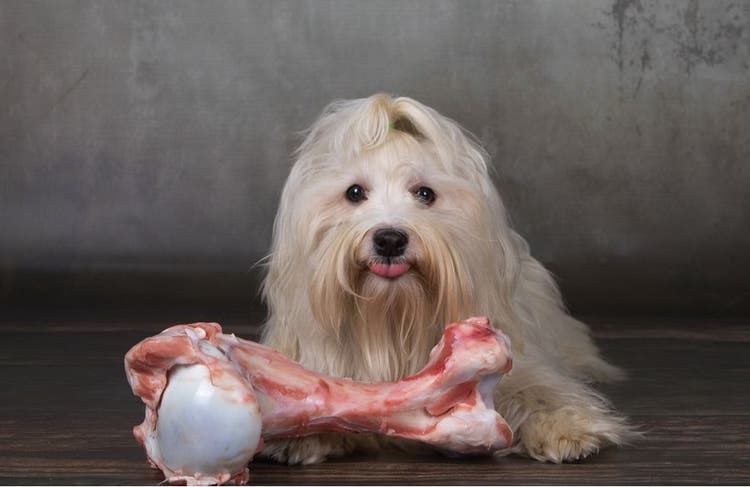
Are Raw-Meat Based Diets Safe for Pets?
Many pet owners are choosing to feed their cats and dogs a diet containing raw meat (also known as biologically-appropriate raw food or BARF diet). These diets are available commercially, however, some owners are opting to home prepare their pet’s diet. Commercial products come in many forms including fresh, frozen, freeze-dried, or even raw-coated kibble. If you are thinking about feeding a raw-meat based product to your pet, you should be aware of certain risks associated with feeding these products, so that you may make an informed decision that is best for your pet and family members.
Why Do Vets Advise Against Raw-Meat Based Diets?
A recent survey of pet owners found that of those feeding a raw-meat based diet (RMBD), only 9% consulted with a veterinarian prior to feeding and most did not trust veterinary advice in general or with respect to nutrition. As veterinarians, it is our job to advise pet owners of risks associated with medications, procedures, and even diets. Part of the veterinary oath is to protect animal health and welfare and to promote public health, therefore, it is important for veterinarians to advise pet owners of the associated risks of feeding a RMBD, even if they routinely recommend them in practice. A concern associated with feeding a RMBD is the risk of infection from harmful bacteria or parasites.
Do Raw-Meat Based Diets Contain Harmful Bacteria?
Commercial RMBDs may contain harmful pathogens (i.e. bacteria and parasites) for both pets and people. A zoonotic pathogen is one that can be transmitted from animals to humans.
Common pathogens associated with RMBDs include:
- Salmonella spp.
- Listeria monocytogenes
- Campylobacter
- Clostridium perfringens
- Clostridium difficile
- Escherichia coli
- Sarcocystis spp.
- Toxoplasma gondii
Studies have also documented the presence of antibiotic resistant bacteria in commercial RMBDs. Dogs and cats can then shed these resistant bacteria in their feces. Raw meat sold for human consumption can also be contaminated with harmful pathogens, therefore owners home preparing their pet’s diet may be introducing pathogens in this manner.
Can Dogs and Cats Get Sick from Eating a Raw-Meat Based Diet?
Dogs and cats are not resistant to bacteria like Salmonella. Several reports in veterinary literature demonstrate cases of illness in both dogs and cats related to the pathogens present in RMBDs. Some pets may consume a contaminated RMBD and not experience any clinical signs, while other pets may experience illness.
Can People Get Sick from a Pet’s RMBD?
Pathogens may be present in RMBDs and dogs and cats can shed these pathogens in their feces. This can pose a risk to both the pet and owner handling the food, the pet, or the pet’s fecal matter. Reports of human illness have been linked to raw pet food, including raw treats (i.e. pig ears).
What Pets Can’t Consume Raw Meat?
Raw-meat based diets are not recommended in households with vulnerable populations of pets and people, including those who are immunocompromised, pregnant, lactating, young, or elderly. Furthermore, dogs and cats who are therapy animals for vulnerable populations (i.e. nursing homes or schools) should not consume an RMBD in order to help protect these populations from exposure to harmful pathogens.
What Can I Do to Minimize the Risk of Harmful Pathogens?
Both the Center for Disease Control and the Food and Drug Administration have safety tips for pet owners who would like to feed a RMBD.
These tips include:
- Wash your hands thoroughly after touching your pet’s diet and any surfaces or objects that have come into contact with your pet’s diet.
- Wash your hands after touching your pet, especially if they lick you.
- Do not kiss your pet or let them lick your face.
- Freeze raw pet food until you are ready to feed. Thaw in the refrigerator.
- Keep raw pet food away from other food in your freezer or refrigerator.
- Thoroughly clean and disinfect all surfaces and objects the diet has touched.
- Throw away uneaten pet food.
If you are feeding a commercial RMBD, it is recommended that you select a company that recognizes the infectious risks associated with these diets and takes steps to minimize this risk. The World Small Animal Veterinary Association has guidelines on selecting commercial pet foods. A consultation with a Board Certified Veterinary Nutritionist® is recommended for pet owners choosing to home prepare their pet’s food to ensure the diet is complete and balanced.